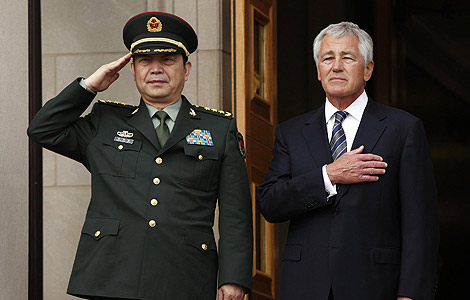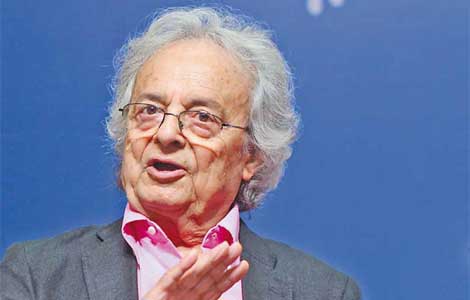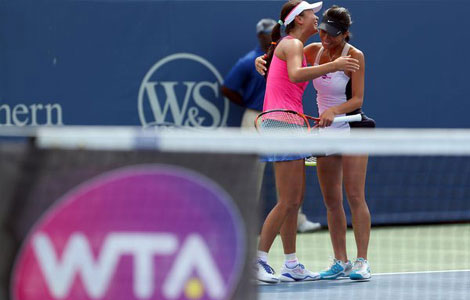Champion makers
Updated: 2013-08-20 16:39
By Belle Taylor (China Daily)
|
||||||||
 |
|
Experts say the future of golf in China depends on junior programs. Peng Tong / For China Daily |
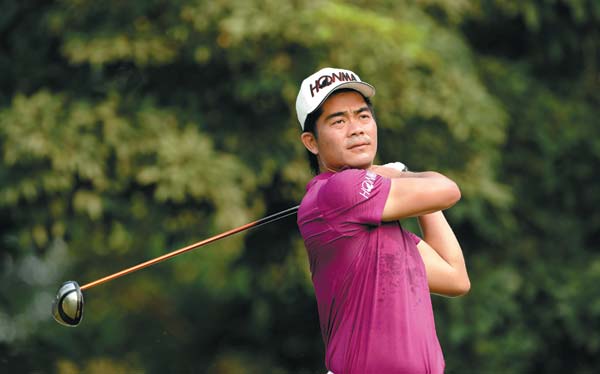 |
|
China's No 1 golfer Liang Wenchong is expected to compete in the Rio de Janeiro 2016 Olympics. Paul Lakatos / Agence France-Presse |
 |
|
Foreign coaches are sought after by parents who hope golf will open doors of opportunity for their children. Li Hao / For China Daily |
In the search for gold, either it be on a medal or in championship winning, the investment is in training and dedication. Belle Taylor talks to the coaches to find out what it takes.
In downtown Beijing, in a basement in a residential complex, there is a 7-year-old boy with a bunch of golf balls. He is carefully balancing them to make a tower, oblivious to the adults speaking in serious tones around him.
His Norwegian coach, Andy Friis, is chatting to his father about the day's lesson, the parent eager to hear how his son is progressing, Friis charges up to 1,200 yuan ($196) an hour for his expertise.
This is the Players Club, a golf haven in the middle of Beijing.
Large screens depict lush, rolling grass in front of miniature putting greens in a rabbit warren of rooms, each no bigger than a studio apartment. Golfers can hit a virtual ball into the virtual distance, spending hours perfecting their real-life golf swing without having to venture beyond the fourth ring road.
The next Chinese golf star might be breathing the fresh air at Mission Hills Golf Club in Guangdong province, but he or she could also be perfecting their putting to the sounds of electronic nature noises piped through speakers at an underground bunker that looks more nightclub than golf club.
|
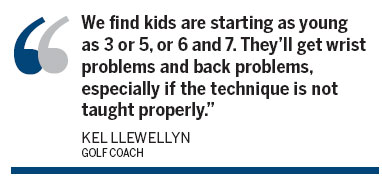 |
In a country with land and water shortages, indoor golf clubs provide a way for the game to be played without sucking up valuable resources.
"I think (clubs such as these) are a good idea, because we have a big population and we don't have much land," says Song Huaxun from the CGA. "If you want more people to know golf these clubs need less land area, and cost less money."
Friis, co-founder of the Player's Club, is passionate about golf development. He may charge big money for his one-on-one training, but he also pours his time into developing golf at a grassroots level, staging tournaments to give youngsters more opportunities to play.
Friis has been involved in golf in China since 2005, when he first came to the country, excited about the opportunities in China. While he is still excited, he says the game has developed more slowly than he expected, but that it started to change in 2009, with the Olympic announcement.
"Now you see golf developing on a different level," says Friis. "Before it was private, and government policies were probably a little bit against golf. But now different provinces are putting money into club development, and different provincial teams."
Friis' grand plans are helped by his association with Kel Llewellyn, a straight-talking Australian who is best-known as coach to China's No 1 player Liang Wenchong. He also knows a thing or two about developing golf in a country new to the sport.
Llewellyn is something of a golfing legend in Asia, having worked in India, Bhutan, Thailand, Malaysia, Singapore and Indonesia setting up junior programs. He is passionate in his belief that to become a strong golfing nation, you need a strong junior program.
"I think if golf wants to progress more quickly, it needs competition between the provinces. Our plan - Andy and mine - is to start this," says Llewellyn. "You need to have a lot of competition, this is how it's done."
Friis, 30, and Llewellyn, 72, are both wary, however, of the single-mindedness in which some wealthy Chinese families are pursuing their golfing dream.
"We find kids are starting as young as 3 or 5, or 6 and 7. They'll get wrist problems and back problems, especially if the technique is not taught properly," says Llewellyn.
Most of the youngsters pursuing golf at a high level in China are from wealthy families who can afford tuition at private academies. Many top young Chinese golfers are enrolled in elite sports colleges in North America or Australia while others are in local academies attached to exclusive country clubs.
"Golf is still considered a rich people's game," says Chang Kai, deputy general manager of Tianma Golf Academy located near Shanghai. The academy trains teenagers in golf, but works with Shanghai Xiwai International School to ensure the young athletes also receive an education.
"We saw a lot of juniors who dropped out of school for their sports, dreaming of becoming top professionals, but they do not know how tough it is in the pro field," says Chang.
Chang believes the government push to have more youths play golf will lead to more good players, but now the parents of his students at Tianma see golf as an investment for the future.
"Going to a US college with a Division I golf scholarship is their goal," Chang says.
How do you build a champion? That is the question being asked by parents who are spending thousands of dollars hiring the best coaches and sending their children to the best sports schools.
Llewellyn thinks money may actually work against the goal.
"Rich people's kids don't become champions, their life is too easy. Tough people become champions," says Llewellyn. He may have been talking about his own student, Liang.
The 35-year-old golfer is a bona fide champion, the only Chinese in the world golf ranking's top 100. He is expected to compete in the Rio de Janeiro 2016 Olympics and many aspiring champions look up to him.
"His parent didn't know anything about golf. In the village they are farmers, so they actually didn't put any pressure on Liang," the golfer's manager Jacky Peng says.
"He had some talent, but most important, he worked very hard," says Peng.
Of course, rags to riches stories are not always the case.
Guan Tianlang, the 14-year-old wunderkind currently wowing the golfing world spends three months a year training in California. When he is China he can be found putting in the hours at the exclusive Troon Golf Academy at Lion Lake Country Club in Guangdong.
He also obviously has remarkable personal drive and talent.
Llewellyn says a true champion, whether they have the best training in the world or a second-hand set of clubs and a lot of time, has something special, an added determination which cannot be taught.
"You get parents who, when their kids are 3 or 4 years old, are pushing them into this. There is no space to form the initiative or imagination required," says Llewellyn.
"Most kids don't become champions."
Chang from Tianma thinks the promise of golf in China lies in its accessibility to the masses.
"The challenges will be how to lower the standard to make it more affordable to others."
The future seems bright. The Olympics are just around the corner and Guan's win has inspired many.
"Golf is definitely growing up," Chang says.
(China Daily USA 08/20/2013 page8)
Most Viewed
Editor's Picks

|

|

|

|

|

|
Today's Top News
Western program new engine for growth
China, Kenya agree to bolster ties
Online shopping clicking up
Typhoon wreaks havoc in the south
ROK-US drill starts as tensions ease with DPRK
Manners missing in overseas travel
Snowden reporter threaten UK
Egypt's Mubarak may be freed
US Weekly

|

|
